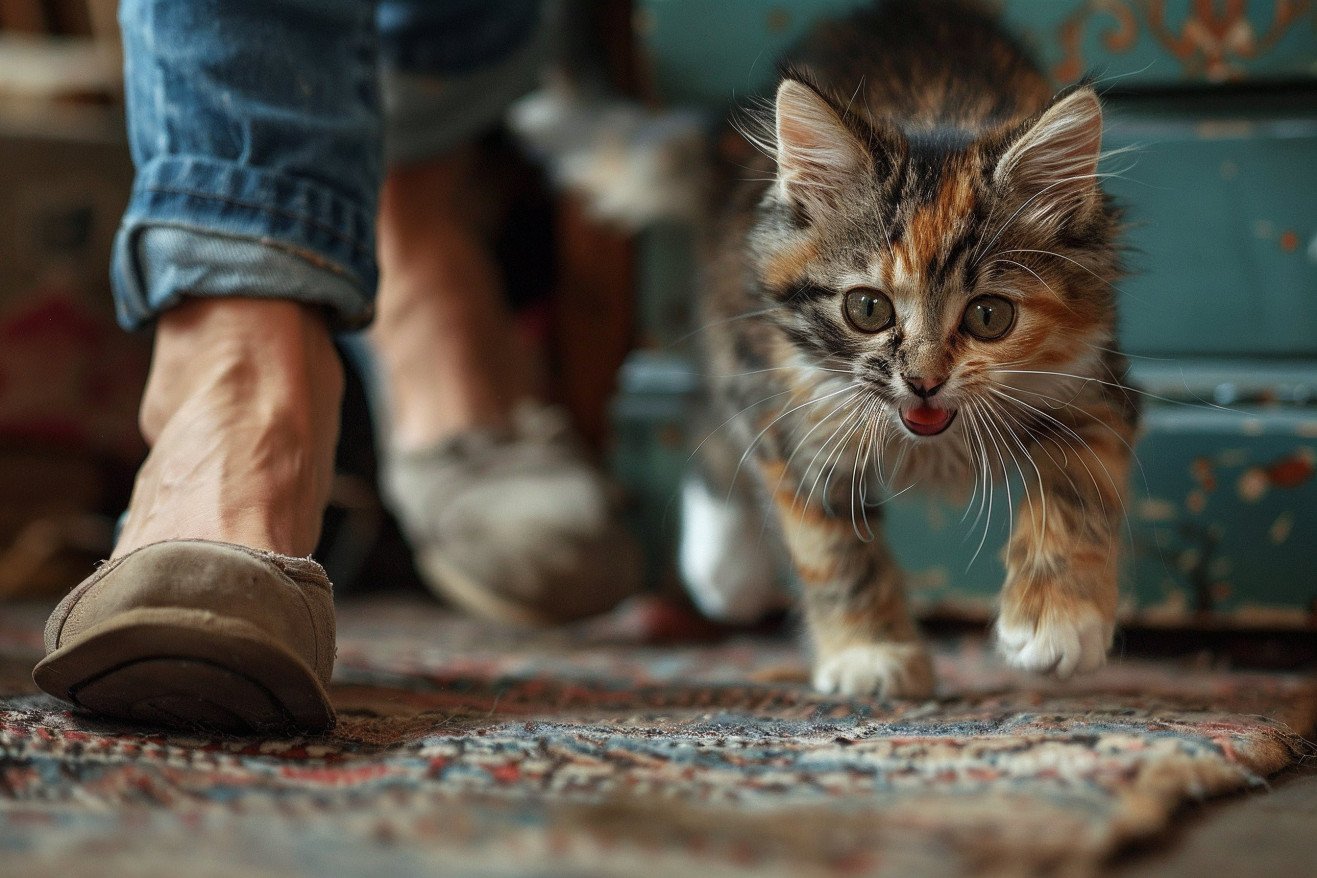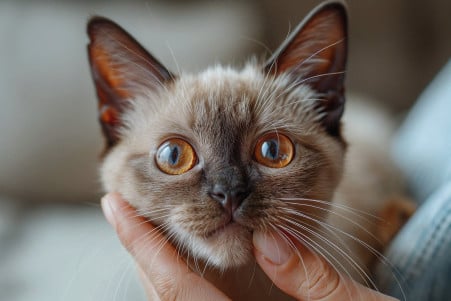Why Do Cats Bite Feet? Stopping the Playful Attacks
26 April 2024 • Updated 24 April 2024

Why do cats bite and scratch feet, and how can you stop this strange behavior? Cats bite and scratch feet because they're responding to their natural hunting instincts, which are triggered by the movement of toes. To help prevent this behavior, make sure your cat has plenty of opportunities to engage in play that allows them to express their hunting instincts in a more appropriate way.
We'll explore the findings of animal behaviorist studies that explain why cats do this and we'll share advice from veterinarians and other animal professionals about how to help cats redirect their hunting instincts. With this knowledge, you can help reduce the number of surprise bites and scratches while still enabling your cat to enjoy the kind of play that's good for them.
Why do cats bite feet?
Kittens and Young Cats: Redirecting Natural Play Instincts
Biting and pouncing are normal play behaviors in kittens and young cats. These behaviors allow them to practice their hunting skills and release pent-up energy. Providing appropriate toys for stalking and pouncing can redirect this natural instinct, according to veterinary advice.
Consistent training and positive reinforcement are key to curbing foot biting habits in young cats. Rewarding good behavior with treats and praise while redirecting to toys during biting incidents can prevent the behavior from becoming ingrained. Establishing boundaries and rules from an early age through patient, consistent efforts across all family members is crucial, as highlighted by cat behavior experts.
By understanding kittens' need to stalk and pounce while providing ample playtime and training, owners can satisfy their cats' hunting instincts in a safe, constructive manner. This lays the foundation for a harmonious relationship as the cat matures.
Boredom, Attention-Seeking, and Environmental Enrichment
Cats that bite feet could be doing so out of boredom or a lack of mental and physical stimulation, according to Cats.com. On the other hand, foot biting could be a way for cats to get attention from their owners, according to POPSUGAR Pets. In these cases, environmental enrichment, including toys, scratching posts, and play, can help with boredom, according to Bright Side, while a consistent schedule and quality time can help with attention-seeking, according to the same Bright Side article.
In other instances, a second cat in the home may help meet the cat's social and play requirements, according to animal behaviorist Shadi Delshad. This may be especially helpful for more active cats that need another cat to help them expend their energy.
Redirecting and Discouraging Foot Biting: What Works?
Ignoring the behavior and not giving the cat any attention when they bite can be effective ways to discourage foot biting, says PetMD. It's also important to redirect the cat to appropriate toys when they do bite, notes The Spruce Pets. Positive reinforcement with treats and praise can also help, explains Daily Paws.
Making sure the cat gets enough play and incorporating daily interactive playtime can also help satisfy their need to hunt, says PetMD. It's also important to make sure everyone in the household is consistent with their training and behavior modification, says The Spruce Pets. With time and dedication to these methods, cat owners can work to reduce the number of surprise bites and scratches they experience while also building a healthy relationship with their pet.
Medical and Behavioral Considerations: When to Seek Professional Help
In some cases, foot biting may be a sign of an underlying medical condition or behavioral issue. Cats in pain or discomfort may bite as a defensive mechanism or to avoid touch, as highlighted by Cornell University College of Veterinary Medicine. Certain health conditions, such as hyperthyroidism or neurological problems, can also contribute to aggression, according to the same Cornell University research.
Fear, stress, and anxiety can also lead to aggressive behaviors like foot biting, as explained by PetMD. If the behavior persists despite training efforts, it's recommended to consult a veterinarian or animal behaviorist, as stressed by VCA Animal Hospitals. Addressing any underlying medical or behavioral concerns is crucial for curbing foot biting and fostering a harmonious relationship with your feline friend.
Conclusion: How to Have a Happy Relationship With Your Cat
It’s important to know how to deal with foot biting in order to have a happy relationship with your cat. Intervening early and training your cat consistently can help stop the behavior before it becomes a habit. Enriching your cat’s environment, playing with them, and giving them attention can also help make sure their needs are met.
If all else fails, you may need to consult a professional to rule out any medical or behavioral issues. However, with a little patience and the right care, you can reduce foot biting and have a happy relationship with your cat.


